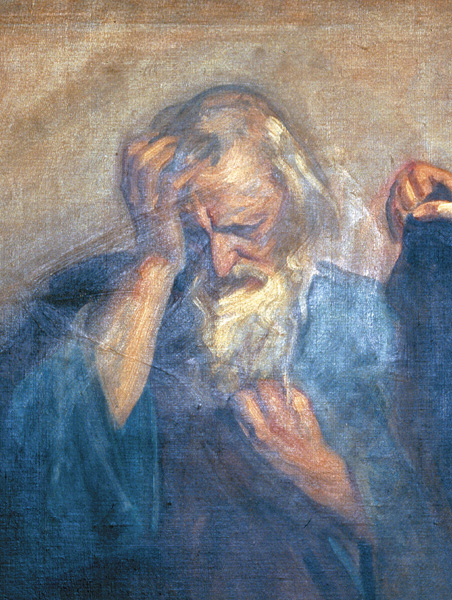Image Details

Boston Public Library
The prophet Zephaniah bows his troubled head. In this detail from John Singer Sargent’s mural series, The Triumph of Religion, painted between 1890 and 1919 on the walls of the Boston Public Library, Zephaniah appears pained by his foreknowledge of the “terrible end” (Zephaniah 1:18) that awaits the wicked of Israel.
Scholars have long assumed that Zephaniah was heavily edited after the Exile, in the fourth or third century B.C.E.—a difficult time of great apocalyptic speculation—and that the “end” Zephaniah refers to is the end of time. But several historical references scattered throughout the book suggest to author Marvin Sweeney that Zephaniah was composed just when it claims it was—during the reign of King Josiah, in the late seventh century B.C.E. According to Sweeney, Zephaniah is condemning specific idolatrous practices of his own day, and warning that the stumbling Israelites would face immediate and terrible consequences.
